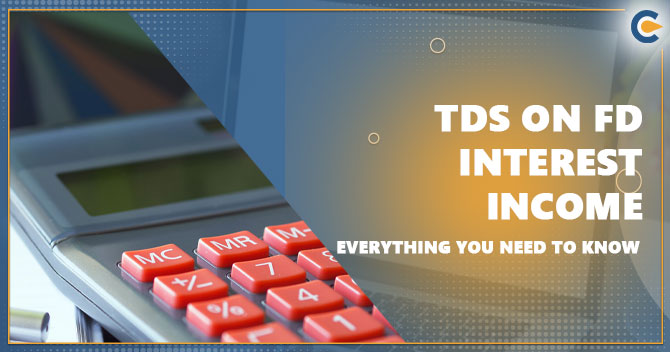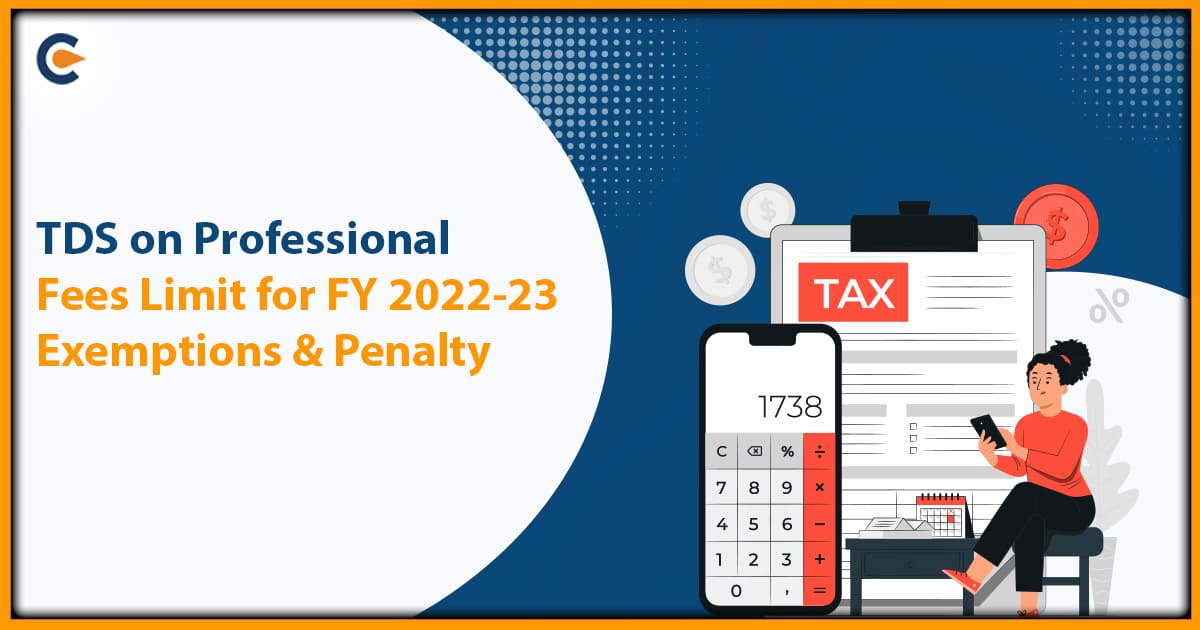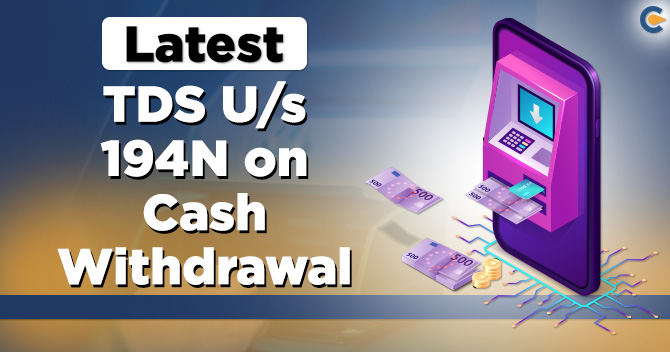The TDS on FD interest is one of the primary concerns for the taxpayers belong to lower and middle class section of the society. Most of these taxpayers not have enough clarification regarding the law of TDS mentioned under the IT Act. If you are one of those who have same issue, then this blog will help you out.
Applicability of TDS on FD interest
FD interest encounters taxes as per your slab rate with applicable surcharge/cess. For instance, if you have an aggregate income of Rs 10, 00,000/annum, then such an amount will fit a 30% tax slab rate.
Suppose your fixed deposit interest is Rs 1 20,000. It will encounter a tax of Rs 37,440 (tax rate of 30% + 0.4% cess). The TDS rate on FDs is 10% if the interest sum for the financial year surpasses INR 10,000 for 2019-20. In the interim budget released in the year 2019, the TDS deduction threshold limit was stressed out to INR 40,000 annually, which is still applicable to this date. Under prevailing Income tax norms, the TDS rate on FD interest is 20% if you fail to facilitate the PAN card to your bank.
For NRO (Non-Resident Ordinary) FDs, the rate of TDS has been capped @ 30%. Meanwhile, for FCNR (Foreign Currency Non-Resident) and NRE (Non-Resident External) will not be subjected to TDS reduction.
The details of TDS deducted by the designated bank are shared in Form 26AS. No TDS deduction is made on either a Recurring Deposit (RD) or a time Deposit made with a post office. Senior taxpayers of 60+ ages can get up to 50,000/year in FD interest without paying any taxes. Furthermore, no TDs will apply to Interest received up to Rs 50,000/annum for them.
Read our article:What are the Different ways to claim the TDS Refund Online? Here’s what you need to Know!
What is a Fixed Deposit (FD)?
A fixed deposit, broadly known as FD, refers to a saving instrument that allows an individual to make a saving for a definite timeframe. The amounts submitted under this saving instrument create cumulative Interest on the same.
The depositor can withdraw the total amount, i.e. Principle amount + Interest, once the fixed deposit reached to a maturity phase. The fixed deposit is arguably one of the safest modes of investment. It ensures fixed returns & scheduled bank deposits, including fixed deposits up to Rs 5 lakh, are assured by the DIGCI (Deposit Insurance Guarantee Corporation of India).
A Tactical Approach to Minimize Tax on Fixed Deposits
- If your overall income for the year is less than two and a half lakh, you can leverage form 15G/15H. This will make sure that the bank does not make any TDS deduction since income does not fit the taxable slabs & you are not accountable to address any tax liability.
- Prefer opening a fixed deposit in a post branch instead of a designated bank because the former option does not lure any TDS deduction.
- Endeavour to create an investment portfolio in the name of your family members. The tax on FD income interest is computed for a taxpayer, and the tax[1] they are liable for depends on the applicable slab rate.
- If you open FDs in different banks or branches, you can spare or minimize the taxes. Let understand this via an example: Suppose you make an investment of Rs 150,000 & the interest rate is 10%. Under such an event, you will get an interest income of Rs 15,000. Since this amount is above Rs 10,000, your bank will impose TDS on it. But, if you bifurcate this fixed deposit between 3 different banks, you will get an Interest of Rs 5000 in each bank. Since this amount is less than the threshold limit, the bank will make a TDS deduction of the same.
- Strive to open the FD account at the end of the middle of the financial year. If you opt to initiate your investment plan to the middle or the end of the financial year, TDS will be distributed in two years. This may result in the interest computation for a financial year falling below Rs 10000, and in such an event, no TDS will be imposed.
Key points to remember about TDS on FD interest income
- If the bank makes TDS deduction more than what is applicable, then, in that case, you can prompt the IT department to revert such an amount.
- If your income lures higher income tax slab rates, say 20% or 30%, then you will be liable to pay tax over the TDS charged as self-assessment tax.
- Bank usually computes the TDS when the Interest is due for the deposit. Hence, the tax applicable to the interest income ought to be paid annually & not at the time of maturity.
TDS levied on Recurring Deposits (RDs)
Recurring Deposits (aka RDs) are made at set intervals. For instance, a Recurring Deposit of Rs 10000/month- Interest on Recurring Deposits is 100% taxable as per your slab. But for senior individuals, interest income from FDs/RDs up to Rs 50,000/annum is exempt. The TDS norms on Recurring Deposits replicate the provisions of TDS on FD. RDs is subjected to TDS deduction if the Interest payable for them in an individual bank exceeds the amount of Rs 10000.
Conclusion
It is somewhat painful for anybody to avail reduced FD amount after maturity owing to the TDS deduction. Taxpayers who are likely to confront this problem in the near future can leverage aforesaid tactics. However, it is advisable not to improvise the same for the sake of additional benefits. Averting tax obligations is not a goal of this write-up.
Read our article:How to File TDS Return Online?











